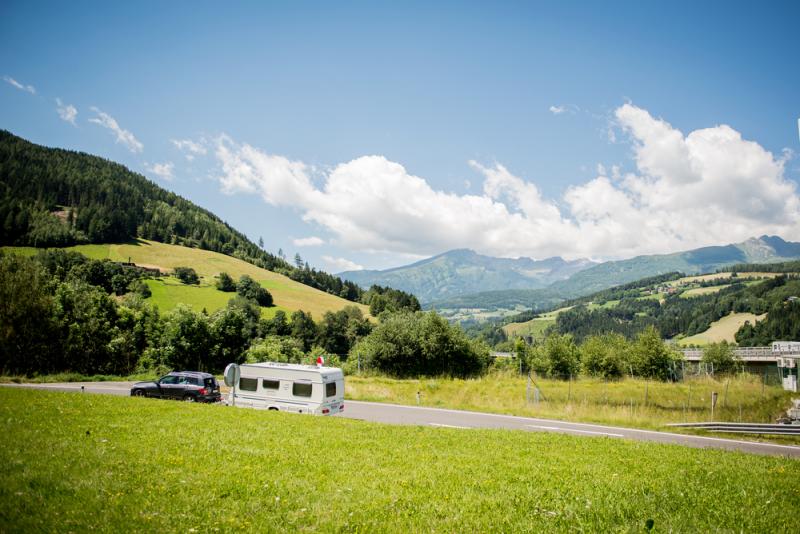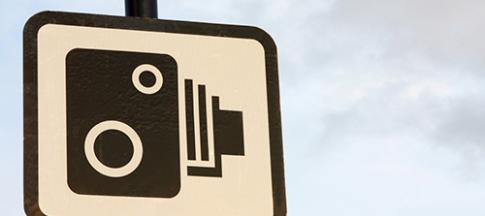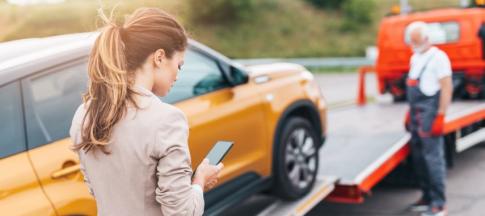
While the open road brings freedom and excitement, you could get stuck if you don’t prepare properly. This is especially true when you drive abroad.
You need car insurance to drive in the European Union (EU). The financial risk of getting in an accident outside of the UK is higher as you may need to pay to take your car home.
Without insurance, these fees can significantly inflate costs.
Does your car insurance cover you for driving in Europe?
Not all car insurance policies cover you for European travel. Some may offer cover as standard, while others may charge you more to add it to your policy.
Even if you have cover as standard, make sure you have the right level. For example, some policies may not cover you for your holiday’s duration.
You may want travel insurance too to protect things like lost luggage, cancellations and delays and medical treatment. It’s important to remember certain limits and exclusions apply.
As always: check your car insurance policy book carefully to find out if the country you’re visiting is covered, as well as any countries you may be driving through.
What car insurance do I need?
You don’t need specialist cover; you just need to check your car insurance policy covers driving abroad.
All our comprehensive car insurance tiers come with 90-day European cover as standard except from Essential.
All named drivers on your policy benefit from the cover, but you must remember to pack your Certificate of Motor Insurance. It covers you up to a maximum of 90 days in a policy term.
Contact us if you need to exceed this limit, as in some cases, we may be able to extend it for a further 12 weeks.
Do I need a Green Card to drive in Europe?
No. Green Cards are no longer required to drive in:
- the EU
- the European Economic Area (EEA)
- Andorra
- Bosnia & Herzegovina
- Serbia
- Switzerland
European driving laws
Most European driving laws are the same as the UK.
Crimes like driving under the influence, driving using a mobile device and speeding are universal, and many European countries have stricter limits than the UK.
You can check the European drink driving limits here, and make sure you visit the Government’s advice for driving abroad for the latest laws and regulations.
European driving checklist
In some countries, you’re required to carry certain safety accessories:
- a red triangle
- a reflective vest
- a first-aid kit
- spare bulbs
- snow chains and winter tyres if it’s cold
- UK stickers or identifiers on your number plate
As of 2021, British motorists driving outside the UK must remove old-style GB stickers or cover them up.
Instead, display a UK sticker or have the UK identifier on your number plate.
You’ll also need specific documents:
- Certificate of Motor Insurance – this acts as evidence that your car is insured
- a full driving licence – keep this on hand whenever you’re driving
- International Driving Permit (IDP) – this is for driving in non-EU countries
- vehicle registration document – this is either the V5 logbook or a VE103 Vehicle on Hire Certificate
If you get in a car accident abroad
The process for collecting details is the same: note the vehicle registration and get the other driver’s details.
Some other things you may need to cover include:
- photos of the incident, the third party’s registration and the damage
- whether the emergency services attended the scene and, if so, their contact details
- copies of your travel documents, tickets and/or proof of travel
- registration number of the cab or trailer if the accident involves a truck
Some insurers ask you to fill out a European Accident Statement (EAS) form, which allows you to note down all the relevant information if you’re involved in an accident abroad.
How to stay safe when driving abroad
Here are a few tips on how to stay safe while driving abroad.
Be careful if someone pulls you over
Criminals can target foreign cars in Europe, often stealing the car after impersonating traffic police or pretending their car is damaged.
Only stop in well-lit, public areas. Ask for the driver’s ID if they want to see your possessions.
Theft or other incidents
Follow the same process as you would in the UK to prevent car theft: store away valuables and park in well-lit areas.
Take note of any Foreign Office guidance and read our advice on preventing car theft.
Emergency cash
Having emergency cash doesn’t hurt, but don’t carry too much, and make sure you keep it in a safe, concealed place.
The best places to drive in Europe
Not sure where you’re going yet? Here are some of our top picks.
Iceland Ring Road
Iceland’s Ring Road circles the country – it’s just over 1300 kilometres long and meanders through unspoilt views and natural wonders.
It’s a bonus that the drive is relatively easy-going, and the roads are well-maintained. You can start in Reykjavik, but most people start the trip near the Golden Circle.
Many tourists make this road trip their whole holiday, and you can split it up over a week or more.
The Romantic Road, Germany
Germany’s Romantic Road is 220 miles of castles, old towns and tucked-away monasteries through Bavaria and Baden-Württemberg.
There are lots of walking trails through the Tauber valley, so it’s good for hikers and those who want a taste of traditional, pastoral German life.
Amalfi Coast, Italy
The Amalfi Coast has become a tourist hotspot, and it’s easy to see why: a stunning coastline, rows of pastel-coloured buildings and soaring cliffs that meet bright blue water.
However, the roads are very narrow, and the area’s popularity makes it hard to park.
We recommend starting in Sorrento, which has easy connections to Rome. After Sorrento, head to Positano, Amalfi and Ravello.
Dubrovnik to Pala, Croatia
Croatia is very popular now, but that doesn’t mean you should skip it.
Dubrovnik to Pala highlights everything that makes Croatia appealing: the Dalmatian Coast, numerous eating spots and the country’s unforgettable beaches.
Pick up a hire car in Dubrovnik, then head to Brac, then Split and end in Zagreb. It’s the ideal way to experience the closest thing to a Croatian highlight reel.
Atlantic Road, Norway
Need something shorter? The Atlantic Road - a short-but-beautiful drive that hugs the Norwegian coastline - is applauded for its engineering more than its eye-catching Nordic views.
It was voted Norway’s Engineering Feat of the Century in 2005, and it’s easy to see why – its most picturesque moment is the Storseisundet Bridge, a curving bit of road over numerous small islands.
If you want some natural, sea views with a splash of impressive engineering, this five-mile journey is for you.


